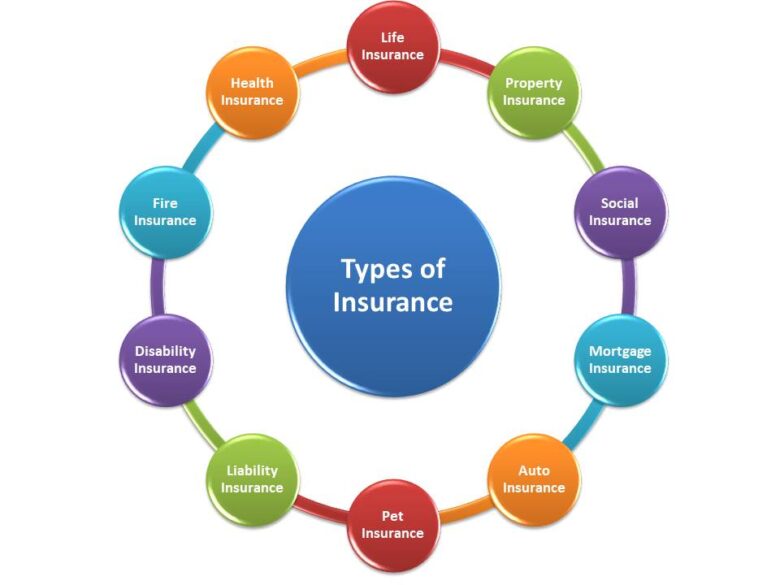Types of Life Insurance Policies

Life insurance is quickly gaining momentum. At last, people are beginning to think about their future and that of their families. It cushions people around you. Life insurance policies are providing your loved ones with financial comfort in case something happens to you unexpectedly. With this financial injection, your family can be able to pay all the bills, like child care and mortgage, and many other expenses that are accumulating by the day.
The basic concept is pretty simple, you are insured and you are paying premiums every month. This is the same concept that we can see with health or auto insurance. Buying yourself a life insurance policy is one of the most generous and selfless gesture you can make when it comes to the financial part. However, where it all can get tricky is when it comes to choosing the right life insurance policy for you.
For maximum peace of mind, it is of the utmost importance for you to choose the right life insurance policy. Moreover, it’s important to note that there are different types of life insurance policies out there. Thus, you should choose a policy that suits your explicit needs. We cannot stress enough on how this question is important. Just think about it, it can have a significant influence on the lives of your loved ones in case something happens to you. The following are common types of life insurance options you can choose.
Term Life Insurance versus Whole Life Insurance

Term life insurance lasts for several years before it expires. In case you die before the term is up, a death benefit is paid to your chosen beneficiary. This is the simplest and most accessible type of life insurance. The death benefit can either be paid out as a monthly payment, a lump sum, or an annuity. But most people prefer receiving it as a lump sum.
As compared to other life insurance policies, term life coverage is usually more affordable, costing between 30 to 40 dollars a month for a 30-year, USD 500,000 policy. And they usually expire at the end of the term, which could last up to 30 years. This is something you need to be careful about. At the same time, a high majority of policies don’t have any other benefit provisions. You need to inform yourself before you sign one of these.
Whole Life Insurance

Whole life insurance is basically considered a permanent life coverage since it doesn’t expire. Not only does it have cash value but it also comes with a cash value. The cash value is a tax-deferred cash savings account that is included in the policy and accrues interest at the company’s predetermined rate. Naturally, it depends on the rate that you are paying every month as a premium.
Every month, a portion of your monthly payment will go into the cash value of your policy, offering a guaranteed rate of return. Whole life insurance lasts as long as you make timely payments. However, it’s important to note that the cash value feature can make this type of insurance quite complex since you’ll need to consider taxes, interest, surrender fees, as well as other stipulations. The principle is the same as with other similar insurances you already had the experience with.
Universal Life Insurance

Just like whole life insurance, universal life insurance also has a cash value. Your premiums go toward the cash value plus the death benefit. The only difference is with universal life insurance policies, policyholders can change the premium as well as the death benefit amounts without necessarily having to purchase a new policy.
Although you will need to pay a minimum amount of premium, you can always use the cash value to pay your premiums. So, if you’ve enough funds in the cash-value account, you can utilize that to skip premium payments completely, letting the accrued interest cater for all the related expenses.
Depending on your personal needs and preferences, you can choose between term life insurance, universal life insurance, and whole life insurance. Just make sure that the policy you choose is affordable and flexible.
Accidental Death Insurance

AD&D insurance or accidental death insurance provides your family with a sum of money if something happens to you accidentally or unexpectedly. It works for a high number of cases like a homicide, car crash, or workplace-related injury. Moreover, it works if the beneficiary survived the accident, but is paralyzed, brutally injured, or crippled.
It is important to know that these kinds of policies are not covering cases like death caused by illnesses, like heart diseases, cancer, or diabetes. It is limited only to the cases where a person’s death leaves his family at high financial risk. It is interesting to know that these kinds of policies are usually limited to the coverage up to half a million dollars and they rarely go beyond this sum.
Guaranteed Issue Life Insurance

This insurance policy is exactly what it sounds like. The application’s approval needs to considered in several categories like age and health. Based on these two elements, the coverage will be calculated. There is one limitation to this one. We are talking about death benefits that can only go up to $50,000. This probably isn’t the sum that can cover long-term needs.
Usually, this policy is seen as a final expense policy, which means that it is made to provide a family with money that is going to be used for funeral and covering all other costs that are associated with the death of their loved one. It comes with something that is called a graded death benefit.
This means that the family will receive a payment only if a certain amount of years has passed between a person signing a policy and the person’s death. This is done to prevent signing a contract with a person that doesn’t have a long life expectancy. Usually, the amount of years that is needed is three years. However, some companies have a different opinion when it comes to guaranteed issue life insurance.
The Bottom-Line
Life insurance policies come in different types. You need to have a certain amount of knowledge about the one that will suit you need the best before you sign it. From term insurance to whole insurance—you have a myriad of options to choose from. The above are common types of life insurance policies on the market. Familiarize yourself with all the options before making a decision. This is a crucial thing to do before you obligate yourself to a contract of this type. For the best policies, get quotes here.
